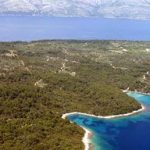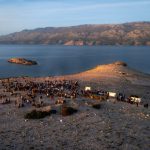As Croatia’s presidency of the EU quickly rolls around, AmCham, the US Chamber of Commerce in Zagreb, held a conference on the opportunities that the six-month rotation brings to the Croatian economy.
As Poslovni Dnevnik/Ana Blaskovic writes on the 7th of November, 2019, a whole six and a half years after its accession to the EU, Croatia is soon set to take over the EU Presidency from January the 1st, 2020. During these six months, Croatia will represent the common interests of all EU countries in addressing pressing issues such as Brexit and harmonising the European budget.
On top of all that, the rotating presidency is also an opportunity for the EU’s newest member state to come into the international focus of the investment public, when it manages to make a positive shift on the competitiveness ladder.
The American Chamber of Commerce, AmCham, organised the aforementioned conference which discussed the opportunities that lie before Croatia to encourage it to boost its competitiveness and growth in order to embrace the positive changes the presidency of the Union could bring to the domestic economy.
”In January 2020, Croatia assumes the important role of representing the common interests of the member states. Given the fact that Croatia receives more than 60 percent of its foreign trade from the EU, the Croatian presidency represents a unique opportunity not only to show what we have, but also to learn from others, because a competitive Croatia means a more competitive Europe,” said AmCham’s executive director, Andrea Doko Jelušić.
In these circumstances, American Chamber of Commerce members, such as Google, Coca-Cola, Uber and Merck, who participated in the panel discussion of the conference, expect the Croatian Government to hear their voices during this period.
“Dialogue is really important to us and is a sign for the future. What we would like to see at the end of the six months of the EU presidency is an active Croatia in Europe. Ultimately, we’re all interested in seeing a more competitive Croatia and a more competitive Europe,” said Doko Jelušić.
The United States and Europe are each other’s major trading partners, generating a massive 5.5 trillion US dollars in trade annually and employing nearly sixteen million workers on both sides of the Atlantic. There is a lot of room for much more foreign direct investment.
The strength of America-Europe ties is illustrated by figures alone: in 2017, 54 percent of US foreign direct investment came from Europe, while 55 percent of global US investment was invested here in Europe.
Commenting on Croatia’s presidency as “historically important”, Minister of Foreign Affairs and EU Affairs Gordan Grlić Radman stressed that the government wants to bring the six-month presidency closer to everyone.
“We want to involve all citizens, the academic and business community, local units, so that citizens understand what the overall interest of Croatia is, and not just that it’s just the changing of the rotating presidency,” the minister emphasised, noting that Croatia is technically ready, at least when is the completion of the buildings in question.
Opportunities for boosting competitiveness and growth were discussed at a panel discussion attended by Ministers Grlić Radman and Josip Aladrović, in addition to giants like Coca-Cola, Uber, Google, Merck and AmCham.
The Minister of Labour, Josip Aladrović, highlighted the development of skills in the context of lifelong education and active adaptation to the labour markets in all sectors and across the EU as a priority for Croatia.
Joško Mrndže, Google’s director for the Adriatic region, said that Croatia is not far behind in terms of adopting artificial intelligence and new technologies, but that their development is another issue. He welcomed the adoption of a national digitalisation strategy that would include artificial intelligence. The importance of digitisation is borne out by the estimate that 20 million jobs will be created in Europe by 2030, 90 to 95 percent of which will require basic or advanced digital skills.
“This represents an opportunity for growth on the one hand, and a challenge on the other,” Mrndže said, emphasising more education, since quite a few people in Croatia don’t possess this skill. Ruža Tomić Fontana, CEO of Coca-Cola HBC for Croatia, Bosnia and Herzegovina and Slovenia, emphasised the importance of really listening to the industry during Croatia’s presidency, as companies have specific knowledge.
According to the foreign minister, taking over the EU presidency represents a historic moment for Croatia to gain in both rating and reputation, but would-be foreign investors will nevertheless base their decisions on concrete figures on cost-effectiveness and feasibility, something that Croatia struggles painfully with.
According to the World Bank’s latest Doing Business report, Croatia has advanced seven places when compared to last year, ranking 51st out of 190 countries in the world.
This confirms that things are changing for the better, although AmCham’s members would like it to be much faster.
“Others are changing too, but they’re doing it even faster. We can definitely see the effects of the tax relifs, it has given momentum to the economy and we shouldn’t just stop there. What we see as one of the key things is the digitalisation of the private sector and of public administration. New technologies give us the opportunity to be more transparent, faster and more efficient and to skip and catch up with everything,” the foreign minister explained
”I’m sure that successful completion of this process will greatly help the Croatian administration to strengthen its voice in the European club, but also to be more effective and more willing to engage in dialogue with all the stakeholders in Croatia. This dialogue is something we need to work on much more, the economy can offer a number of good practices, many opportunities for cooperation, and I’d like the government to hear that and be able to use those opportunities,” said Doko Jelušić.
The conference was closed by President Kolinda Grabar-Kitarović, who talked about a growing Europe – the first pillar within which focuses on equally sustainable and inclusive growth, which also includes efforts to address the problem of poor demographics, another burning issue for Croatia.
The second pillar is a Europe which connects, which will promote initiatives that contribute to transport, energy and digital connectivity. These include the promotion and completion of trans-European transport networks, maritime affairs and the development of competitive and sustainable shipping, creating the conditions and removing barriers to the full functioning of 5G networks, the continued establishment of a functional digital single market and the continuation of the establishment and implementation of the Energy Union as the backbone of a European Common Energy Policy.
Finally, what is needed is a Europe that protects its citizens by enhancing their security, both internally and externally, with an emphasis on a comprehensive approach to migration, especially illegal migration, while continuing to be a Europe that is open and assertive in its immediate neighbourhood and globally.
Make sure to follow our dedicated politics and business pages to find out more about Croatia’s upcoming EU presidency.









